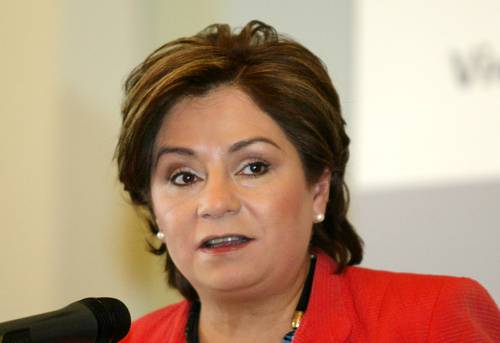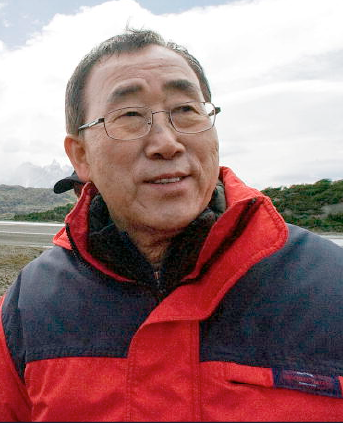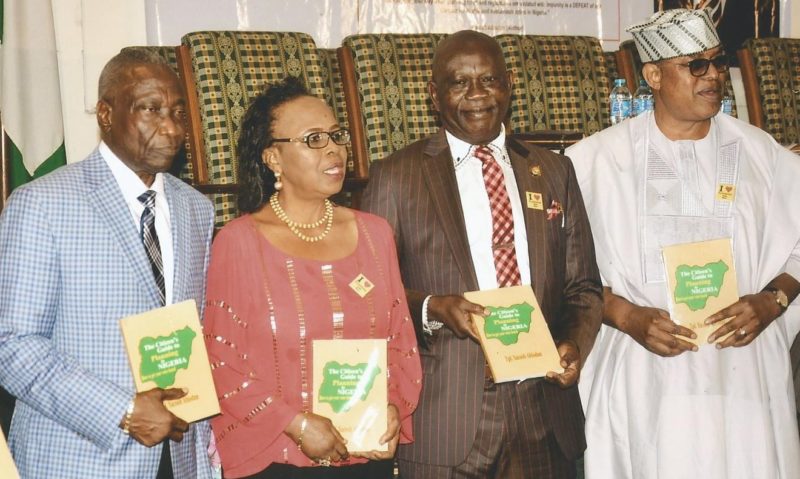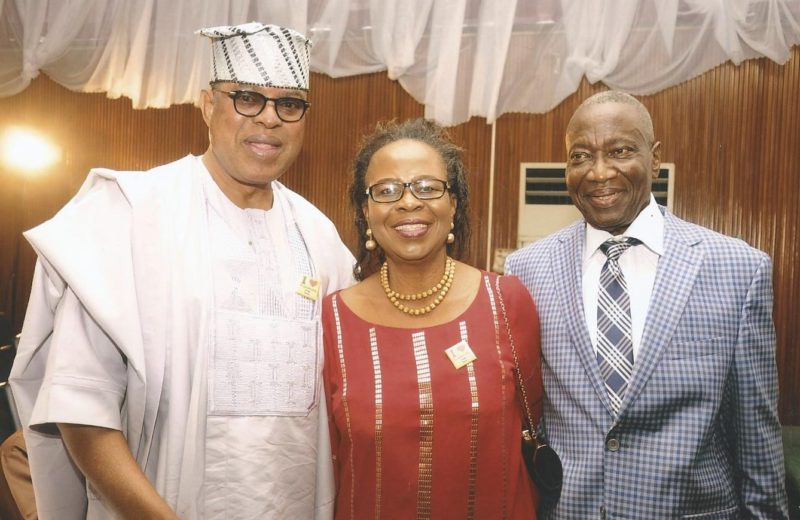How Revenue Service promotes sanitation in Kwara
“Environment is human’s first right. Without a safe environment, no one can exist to claim other rights be they social, economic and political.” – Ken Saro Wiwa, late Nigerian human rights activist and environmentalist.

These words of Saro Wiwa point to the fact that the environment sustains humans; it is where we live and we must preserve it. Several studies have revealed that the way people treat their environment greatly influences the quality of their wellbeing. It is important they adopt practices and hygienic conditions that will promote good environmental sanitation and cleanliness which will eventually guarantee them good health.
It is in the light of the above that the Kwara State Internal Revenue Service (KWIRS), recently, as part of its community impact programmes, embarked on an environmental sanitation exercise to clear drainages and repair damaged portions of various roads within the Ilorin Metropolis.
The KWIRS team led by its Executive Chairman, Dr. Muritala Awodun, moved around the streets of Ilorin to sensitise residents on the need to keep their environment clean. Dr. Awodun explained that the sensitisation campaign was informed by the need to make Kwara tidy, adding that the clearing of drainages is to allow for free flow of water as they have been blocked by filths.
He stated that the fixing of potholes, which has begun on the Tanke-University of Ilorin Road, would be extended to other parts of the metropolis such as Asa Dam, Muritala Road, Adewole, Sango and many other areas.
The KWIRS boss advised people of the state to stop throwing refuse into drainages in order to prevent flooding during the rainy season, while noting that flooding causes damage to the roads. He noted that everybody has a role to play in ensuring a more sustainable environment.
In continuation of its efforts to encourage proper waste disposal in the community, KWIRS, in collaboration with the State Ministry of Environment, has acquired 40 tricycles which will be used to collect wastes on a daily basis. Big nylons where the wastes will be kept will also be distributed to households. This is to prevent indiscriminate dumping of refuse as several drainages have been turned to dump sites.
Dr. Awodun, who disclosed this to newsmen, noted that the provision of the tricycles, which will be branded as “environmental tricyles”, is to ensure adequate waste collection, recovery and disposal arrangements as the tricycles will be moving around to collect wastes. He assured that the tricycles would commence operations by September.
He said that KWIRS would not relent in carrying out its community impact programmes, just as he encouraged the people of the state to keep paying their taxes, adding that it is their civic responsibility.
The KWIRS commitment to ensure a clean ‘Kwara environment’ through its community environmental sanitation exercise would be rendered useless if we the people continue to treat the environment with impunity. We must begin to treat issues of environmental sanitation with all the seriousness it deserves by ensuring proper disposal of waste and adopting other hygienic environmental practices.
By Hameed Muritala (Ilorin, Kwara State)
Espinosa: Climate action and a sustainable world
In a recently published policy editorial, Executive Secretary of the United Nations Framework Convention on Climate Change (UNFCCC), Patricia Espinosa, foresees a sustainable future for humanity, albeit via strategies bordering the threesome: Paris Climate Change Agreement, the 2030 Agenda for Sustainable Development and the Sendai Framework for Disaster Risk Reduction

There is only one possible future for humanity and that is a sustainable one. In 2015, the global community converged on this integrated vision for the future and set in motion the pathways to an economic and social transformation to achieve it.
The vision is articulated through the Paris Climate Change Agreement, the 2030 Agenda for Sustainable Development and the Sendai Framework for Disaster Risk Reduction.
The unity of purpose reflected in these momentous agreements will now need to leverage unprecedented scale and depth of universal action involving all actors at all levels in all regions of the world. The challenges will be enormous but the rewards of success will be even greater.
The plan requires a profound structural transformation that places at its very heart low-carbon economies and societies which are resilient to climate change.
Over the next 15 years, the objectives of these agreements – linking climate, sustainability and resilience – must see unprecedented reductions in global greenhouse gas emissions and unequalled efforts to build societies that can resist rising climate impacts.
The current rate of progress will not deliver success.
A priority requirement is a much more rapid and fundamental shift in the global patterns and incentives of investment away from unsustainable power generation, infrastructure, pollution and waste.
All action to address climate change is an inseparable and integrated part of the whole plan and the leadership and commitment of all governments remains central to success.
Climate action contributes directly to the greater human well-being that is captured in the seventeen sustainable development goals. It protects lives and livelihoods, improves public health, creates new industries and sustainable farming, cuts costs for governments, business and citizens and opens up new avenues of profitable investing.
Climate action is also absolutely necessary to avoid the existential crises that unchecked climate change would present to humanity.
Greenhouse gas concentrations continue to rise in the atmosphere and global temperatures break record highs by the month.
To limit global warming to well below 2°C and as close to 1.5°C as possible to prevent dangerous tipping points in the climate system, global emissions must peak soon and be driven down drastically thereafter. A balance must be achieved in the second half of this century between global emissions and removals through sequestration into ecosystems or through other means.
The generations alive right now are at a unique crossroads. We are the first who can end poverty but the last who can act to avoid the dangerous climate change that could undermine the universal well-being that lies within our grasp.
Government Leadership a Foundation of Future Success
Success will undoubtedly require political leadership and momentum from the highest levels, but supported by a clearly presented and growing public understanding of the enormous social, health and economic benefits that will accrue to citizens everywhere.
Technology developments and smart finance are moving ever more rapidly towards theses transformational goals, but nowhere near fast enough.
The power to shift all this into higher gear still rests firmly with governments, both individually and collectively. Key to the transformation will be the way national governments integrate climate action and implementation of the sustainable development and risk management goals across sectors and ministries.
More climate-friendly, coordinated laws, policies and incentives are needed. All forms of unequal treatment favoring old growth and development models based on fossil fuels and high-carbon lifestyles and aspirations must be removed soon.
But while the transformation demands new technologies and redirected investment, it does not require an entirely new way of human inter-action only closer and deeper cooperation between the levers of change – namely governments working hand in glove with cities, regions, business and investors.
Meanwhile, the well understood economic incentives of risk and return and social goals of equity and justice remain completely relevant and deployable in the race to a low-carbon, resilient future.
Opening up the private sector appetite to fund the transformation directly is essential. Tens of trillions of dollars sit in banks and on corporate balance sheets at low, zero, even negative interest rates looking for bankable projects with real returns if the right incentives, sureties and certainties are provided by national governments, supported by the international community and its multilateral lenders.
Paris Climate Plans and Support Structures Offer Platform to Faster Progress
One of the most significant outcomes of Paris was that governments publicly accepted responsibility to lead climate action.
They presented a global set of national plans to take immediate action, pledging never to lower efforts over time and, whenever possible, to raise ambition.
They agreed to complete in good time the details of a transparent global regime which will account for, review and underpin greater action by all sides.
And they agreed to complete but also to strengthen adequate technology and financial support to nations, including the poorest and most vulnerable, so all countries can build their own clean energy, sustainable futures.
Because well-planned and supported climate action in its many forms almost always speeds up advances in sustainability and resilience, these plans have a multiplier effect for faster progress across the board.
To reach its full potential, governments will now engineer the ambitious design of the Paris Agreement into a well-oiled machine of these fully functioning working parts capable of accelerating climate action to meet the agreement’s stated aims and goals.
Essential for International Institutions to Focus and Prioritise
Meanwhile, continued success under the UN climate regime will both strengthen and be strengthened by the other country-level initiatives across the global development, environmental, disaster risk, human rights and peace agendas.
Without decisive climate action all these other goals will be difficult if not impossible to achieve, but without serious and significant progress on development, environment disaster management, human rights and peace, combating climate change and building resilience will become harder and less certain.
This unified development agenda is therefore the core agenda for governments under the United Nations and the prime focus for UN agencies and other multilateral institutions which assist. No single process or agency can possibly adopt, or try to adopt, all aspects of the solution under its wing.
Leadership responsibility for different aspects of progress will be coordinated by those organisations best placed in resources and skills to effect change. Credit for progress will flow to the entire organisation rather than to its individual parts.
The Will and Knowledge to Succeed
Achieving the aims and ambitions of the Paris Agreement are not a given. The world needs to understand the urgency and complexity of what the international community has embarked upon.
This is a multi-decadal effort to turn around two centuries of development based on fossil fuels and the mining of nature-based resources into an all-embracing sustainable path for every nation, man, woman and child.
But I am confident that world leaders and the enormous groundswell of support from cities, companies, investors and citizens can propel ambition further and faster in support of our shared vision of a climate-secure and sustainable future.
NiMet predicts cloudy, rainy weather for Monday
The Nigerian Meteorological Agency (NiMet) has predicted cloudy weather conditions over the central states with slim chances of isolated thunderstorms over Jalingo, Mambilla, Markurdi and environs on Monday morning.

The predictions are contained in the Weather Outlook issued by NiMet’s Central Forecast Office on Sunday in Abuja.
It stated that localised thunderstorms were expected over the high grounds of Abuja, Lokoja, Kaduna, Jos and Nasarawa in the afternoon and evening, with maximum temperatures of 25 to 31 degrees Celsius.
The agency predicted that some states would experience cloudy situation in the morning, with probability of localised rains over Calabar axis.
It also predicted that localised rains/showers were expected over the inland and coastal cities in the afternoon and evening hours with maximum temperatures of 29 to 30 degree Celsius.
NiMet predicted partly cloudy morning over the northern states, with prospects of isolated thunderstorms over Sokoto, Katsina, Gusau, Kano and Yelwa later in the day and maximum temperatures of 30 to 35 degrees Celsius.
According to the prediction, relatively stable weather condition is anticipated in the morning over the country with chances of localised thunderstorms and rains later in the day.
Govts urged to impose restrictions on pangolins trade
Environmentalists have urged governments attending a global wildlife conference in South Africa this month to impose maximum restrictions on the trade of endangered pangolins, a scaly mammal that is the inspiration for two Pokemon characters.

The long-snouted, nocturnal pangolin, the size of a small dog and found in Africa and Southeast Asia, is the world’s most illegally trafficked mammal, according to the United Nations Environment Programme (UNEP).
Vietnam is at the center of the trade, said Bui Thi Ha, the deputy director of Education for Nature Vietnam (ENV), an organisation that works to reduce consumer demand for wildlife products.
She said more than 2,600 pangolins had been seized in Vietnam over the last three years, along with more than 30 tonnes of frozen meat and scales.
“Vietnam is both a transit point for pangolin trafficking, as well as a large consumer market. The destination for most of the pangolins is China, but the demand for them is on the rise, especially in the big cities,” she told Reuters.
It is unclear how many pangolins are left in the wild.
ENV said pangolins are shipped from Africa to meet demand in Asia, where products made from pangolins are prized for their supposed medicinal value and have led to local numbers falling.
The pangolin trade is already limited under the Convention on International Trade in Endangered Species of Wild Fauna and Flora (CITES). Environmentalists are pressing CITES to increase the trade restrictions to “only in exceptional circumstances” – the highest level of protection.
CITES, an agreement among 183 governments to ensure trade in wild animals and plants does not threaten their survival, will consider the request at the Sept. 24-Oct. 5 meeting in South Africa.
By Ming Nguyen (Reuters)
Food security concerns as climate change threatens wheat production
One of the biggest concerns about climate change is the effect it will have on agriculture. Many studies have suggested that rising temperatures could be harmful to farms around the world, although there’s plenty of uncertainty about how bad things will get and which food supplies we should worry about most.

Now, a new study published in a recent edition of Nature Climate Change reiterates concerns that wheat – considered to be the most significant single crop in terms of human consumption – might be in big trouble. After comparing multiple studies used to predict the future of global crop production, researchers have found that they all agree on one point: rising temperatures are going to be really bad for wheat production.
Scientists use a wide range of techniques to make predictions about the future of the environment, including a variety of models and statistical analyses. Often, though, there’s debate about which technique produces the most accurate results.
The authors of the new study, who included dozens of scientists from institutions in China, the U.S., Europe and elsewhere around the world, decided to compare three different methods used to assess the impact of temperature changes on wheat production. These included a type of statistical analysis that relies on historical observations of climate and global wheat yields to make inferences about the future, as well as two different types of model simulations.
For the purposes of this comparison, the researchers focused only on the effects of temperature, without incorporating other climate-related factors such as rising carbon dioxide levels or changes in precipitation. Specifically, all the techniques suggested that a global temperature increase of 1 degree Celsius would lead to a worldwide decline in wheat yield by between 4.1 and 6.4 percent. The world currently produces more than 700 million tons of wheat annually, which is converted into all kinds of products for human consumption, including flour for bread, pasta, cakes, breakfast cereals and more. A reduction of just five percent would translate to a loss of about 35 million tons each year.
And that could spell big trouble for the global food supply. A new report from the United Nation’s Food and Agriculture Organisation (FAO) projected that world wheat production for the 2016/17 year would hit 741 million tons, nearly 500 million of which is destined to be used directly for human consumption. While global production of coarse grains, including corn, does outweigh the production of wheat, a significantly smaller proportion of it goes to human consumption worldwide, with the rest being used for animal feed and industrial purposes. According to the FAO, global human consumption of coarse grains comes to about 200 million tons annually.
The various studies also produce similar findings on a country level for the world’s largest wheat producers, including the U.S., China, India and France. For instance, all of the study methods suggested that China will see yield reductions of about 3.0 percent per 1 degree Celsius increase in global temperature. And India was projected to experience much greater declines of about 8.0 percent.
In general, the results suggest that warmer regions of the world will experience the greatest temperature-related losses. However, the agreement among the different study methods on exactly what these losses will be was less consistent for smaller countries than for the larger producers.
“The consistent negative impact from increasing temperatures confirmed by three independent methods warrants critical needed investment in climate change adaptation strategies to counteract the adverse effects of rising temperatures on global wheat production, including genetic improvement and management adjustments,” the researchers wrote in the paper.
There are still some major uncertainties, though. For one thing, the researchers note, the agreement among the different types of studies became less consistent above 1 degree Celsius of warming. And there was also less agreement at local and regional levels.
Senthold Asseng, a professor of agricultural and biological engineering at the University of Florida and one of the paper’s authors, also stressed the fact that this study only looked at the effects of temperature. Future climate change is likely to include a wide range of other complex factors, he said, some of which may even positively affect crop cultivation in some parts of the world. Research has suggested that rising carbon dioxide concentrations in the atmosphere, for instance, may enhance the growth of some plants.
“It might be difficult to understand that some of the factors might bring these numbers down, other factors bring them up,” Asseng said. Whether the combination of all these factors translates to a net increase or decrease in production may vary from one location to the next. Generally, experts believe that climate change will have a negative influence on global agriculture, but the way that all the different climatic factors interact with one another in all the different regions of the world is still far from clear.
Finding better ways to account for these complexities in our models and statistical analyses will help scientists gain a better understanding of the interactions among various climate factors. For the time being, though, multi-method assessments can serve as a good way to check on current assumptions about the future effects of climate change and can “improve reliability of the assessment of climate impacts on global food security,” the researchers write.
“It’s really about building confidence,” Asseng said. “And I think it’s a good way for the future to try to not just rely on a single method. If you have different ones, use different methods if you can.”
By Chelsea Harvey (The Washington Post)
Paris: Ki-moon convenes high-level event, Buhari to endorse pact
United Nations Secretary-General, Ban Ki-moon, will convene a special High-Level Event on Entry into Force of the Paris Agreement on Climate Change on Wednesday, 21 September at the UN Headquarters in New York for the deposit of instruments of ratification, acceptance, approval or accession to the Paris Agreement on climate change.

With China and the United States formally joining the Paris Agreement in early September, a total of 27 countries have ratified the Paris Agreement so far, accounting for 39.08 per cent of global greenhouse gas emissions. The high-level event will provide an opportunity to other countries to publicly commit to joining the Paris Agreement before the end of 2016.
Nigeria, for instance, is expected to join the other 180 signatories to the global pact during the event. Minister of Foreign Affairs, Geoffrey Onyeama, on Saturday disclosed that President Mohammadu Buhari of Nigeria would sign the Agreement, which sets out a global action plan to put the world on track to avoid dangerous climate change by limiting global warming to well below 2°C.
The Paris Agreement will enter into force 30 days after the date on which at least 55 countries, accounting for 55 per cent of the total global greenhouse gas emissions, have deposited their instruments of ratification or acceptance with the Secretary-General.
This global climate agreement will accelerate the growth of clean energy and help us achieve the Sustainable Development Goals and will strengthen international stability and security, save lives and improve human well-being, said UN Secretary-General Ban Ki-moon.
The Paris Agreement was adopted on 12 December 2015 at the 21st session of the Conference of the Parties (COP21) to the United Nations Framework Convention on Climate Change (UNFCCC) held in Paris from 30 November to 13 December 2015. In accordance with its article 20, the Agreement shall be open for signature at the United Nations Headquarters in New York from 22 April 2016 until 21 April 2017 by States and regional economic integration organisations that are Parties to the UNFCCC.
Onyeama said that top on Nigerian UN agenda during the General Assembly is to engage African Union and other countries to work towards the reform of the United Nations.
He said that the leaders would also be engaged to be more democratic and responsive to the needs of the world.
“In addition to the wave of change, Nigeria will like to propose to the UN body to create an agency dedicated for the youth,” Onyeama said.
The minister assured the international community that Nigeria would support a new UN Secretary-General that would be development and Africa-friendly as well as sympathetic to the course of Nigeria.
On investment, power and insecurity in Nigeria, he said that the Federal Government had established various security mechanisms to create attractive investment environment for would-be investors.
“With the fall in oil price, Nigeria is looking into diversification of its economy towards agriculture and solid minerals.
“It is expected that there will be a lot of investment opportunity for foreign investors during the US-Africa Business Forum, scheduled to take place next week in New York.
“Nigeria has been invited as one of the focal countries whose economies search light is beamed on,” he said.
He also said that Nigeria would host a high level side event on Climate Change, to showcase its efforts in the Ogoni clean-up.
This event, according to him, will come up after the president has signed the Paris Agreement on Climate Change.
The minister also addressed issues of poverty, migration, human rights, terrorism and security and on challenges in retrieving Abacha’s loot and other Nigeria’s assets stashed abroad.
Images: Abiodun’s book launch, 70th birthday
Yacoob Abiodun, urban planner and erstwhile Secretary of the National Housing Policy Council, on Tuesday, September 6, 2016 launched his second book, while also celebrating his 70th birthday.
Titled “The Citizen’s Guide to Planning in Nigeria: How to get your voice heard,” the 195-page book is coming on the heels of “Affordable Housing & Urban Planning Practice in Nigeria: Advocacy for Change”, Abiodun’s maiden publication.
The daylong event was graced by a host of dignitaries.














